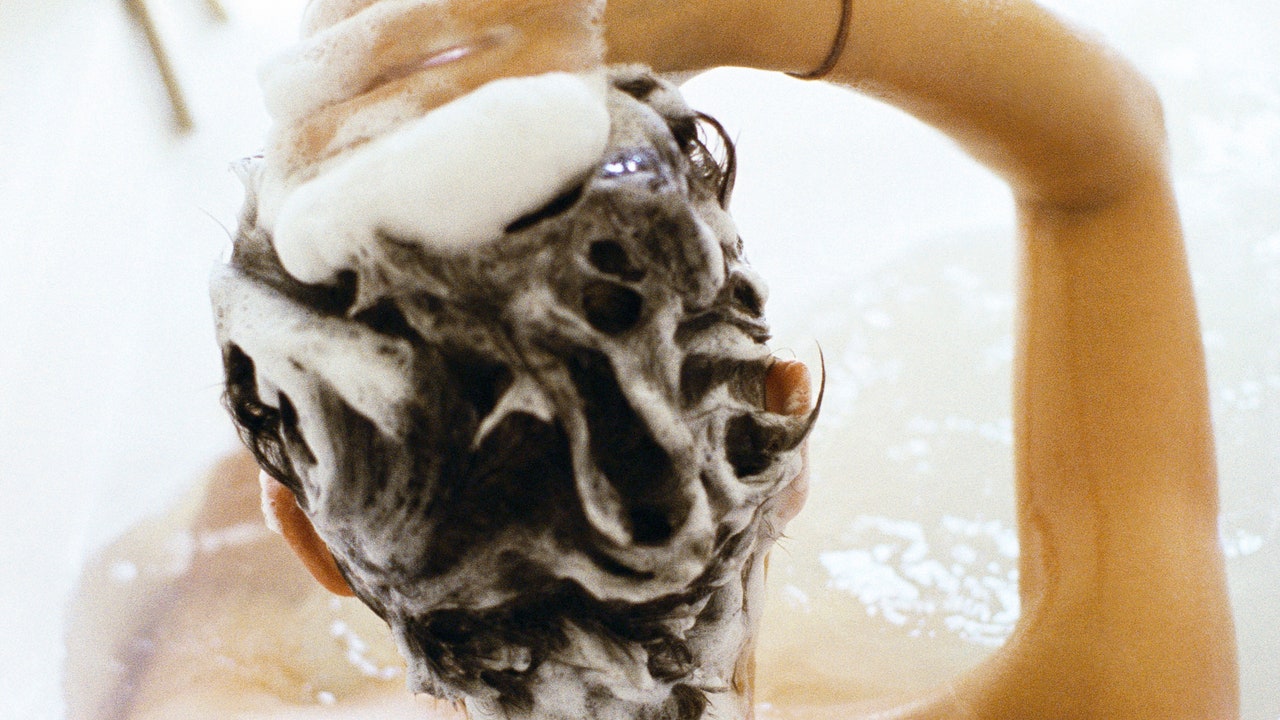At the same time, skin cells die and are constantly renewed. When hair is washed infrequently, these dead cells remain on the scalp for longer, leading to a build-up of dirt, oil, and dead skin particles. This accumulation creates an ideal environment for the proliferation of microorganisms, such as the yeast fungus Malassezia, which lives naturally on the scalp. Increased sebum production and a lack of cleansing can cause this fungus to multiply.
This is because Malassezia feeds on the fats in the sebum and when it multiplies, by-products are released that can irritate the scalp. This irritation then leads to increased cell production and accelerated skin desquamation, which becomes visible as dandruff.
3. Itchy scalp
An itchy scalp doesn’t just signify dryness caused by overly frequent washing, but it’s also an indication that you aren’t washing your hair enough. I know, annoying! Conditioning and styling products, dirt, sweat, and dead skin cells can accumulate on the scalp. This build-up provides an ideal breeding ground for microorganisms, such as the aforementioned Malassezia yeast, which doesn’t only promote dandruff, but also by-products that can irritate the scalp and cause itching. Not cleansing the scalp enough also promotes skin diseases such as seborrhoeic dermatitis, which is accompanied by itching.
4. Dull hair
Is your hair dull? This could be due to build-up from styling and care products, which roughen the hair surface and make it less able to reflect light—especially if you use a lot of dry shampoo between washes. This is because the powder particles it contains make the hair look dull, but a deep cleansing shampoo can bring hair back to life, especially when combined with a shine-enhancing conditioner.
5. Hair loss
Increased hair loss could also indicate that you aren’t washing your hair enough. One of the most common causes of hair loss—that is indirectly associated with infrequent shampooing—is seborrheic dermatitis. This condition is characterized by an overproduction of sebum and the growth of the aforementioned Malassezia yeast fungi on the scalp.
If the scalp is insufficiently cleansed, this sebum production can increase and promote the proliferation of Malassezia, which leads to inflammation and irritation. Chronic inflammation of the scalp can then lead to hair loss, however, it’s worth noting that the studies on this are not yet solid. Regular washing helps keep the scalp healthy and free from irritation, and the hair also retains its natural shine.
Read the full article here




